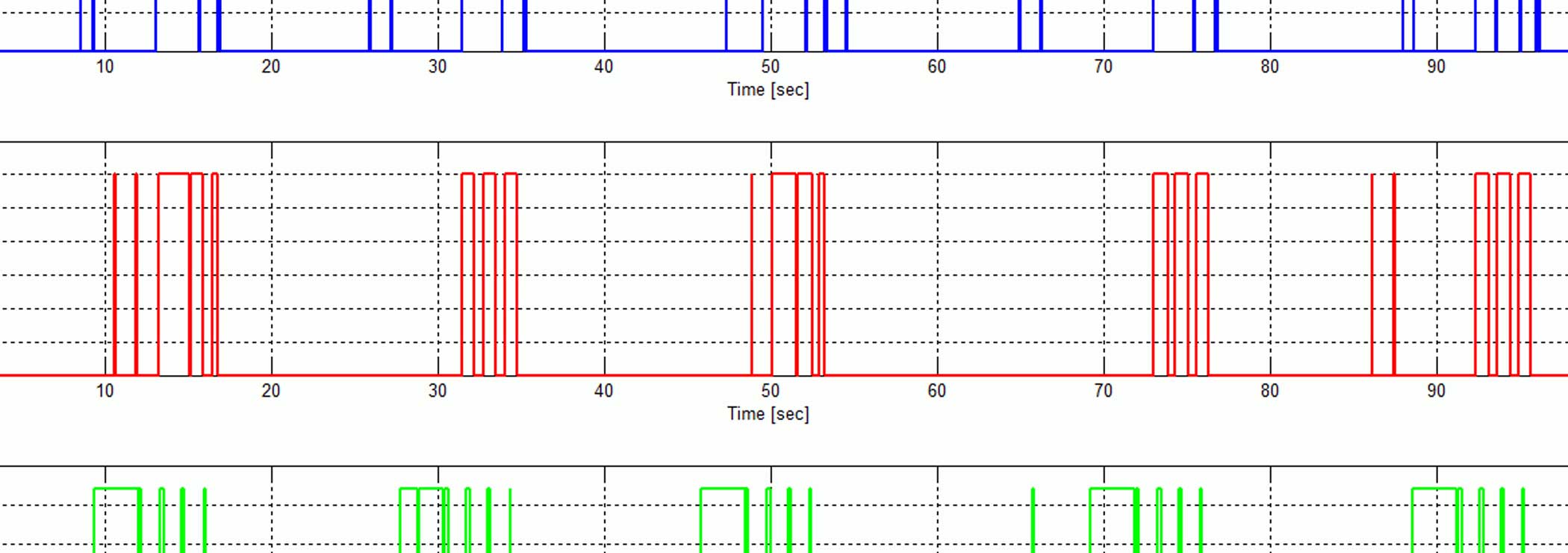
Flicker Simulation with Simulated Voltage Waveforms
In feasibility studies or in the concept phase simulation is the only possibility to asses and optimize different solutions with respect to flicker performance. For basic analysis usually no complete system simulation is needed.
Example: Phase Control
File: example_phase_control.m
In this example the soft switching behavior of a load (1 kW) using phase control and its influence on flicker reduction is investigated.
The results confirm a significant flicker reduction. Using a linear ramp of approx. 1 s, Pst can be reduced by a factor of 5.
Note that the use of phase control generates harmonic currents which might violate IEC 61000-3-2 and should be filtered accordingly.

Flicker Simulation using Real Measurements
A good prediction of flicker can be attained by feeding measured data from real hardware (functional prototypes, evaluation boards, prototypes...) or from system simulation.
In principle, the supply voltage could be recorded using e.g. a digital oscilloscope. This means that a power source with a reference impedance and defined open circuit voltage according the standard must be available (see Flicker In A Nutshell).
The simpler approach is the recording of the switching signals and calculation of the resulting supply voltages.
Example: Heater Control
File: example_heater.m
In this example a system is investigated which controls 4 heater elements with an overall power of 4.5 kW. The control signals for the different heater elements were recorded using a digital scope and stored as .mat files.
The simulated value of Pst is 1.1, which means the system would not pass.

Test Cases from the Standard
In the flicker standard IEC 61000-4-15 test cases are specified which allow the measurement of the accuracy of the tester. Rectangular waveforms of different amplitudes and frequencies are fed into the flicker meter and the resulting Pst values measured.
Example: Performance Test
File: example_testbench_230V_50Hz.m
File: example_testbench_120V_60Hz.m
These examples can be used to verify the performance of the flicker simulator versus the specified test cases.
Patrik Jourdan
Do you have additional questions? Do you have feedback or improvements? If so, email me or comment your thoughts below!
Would you like to benefit from our knowledge? Visit our contact page!


No Comments